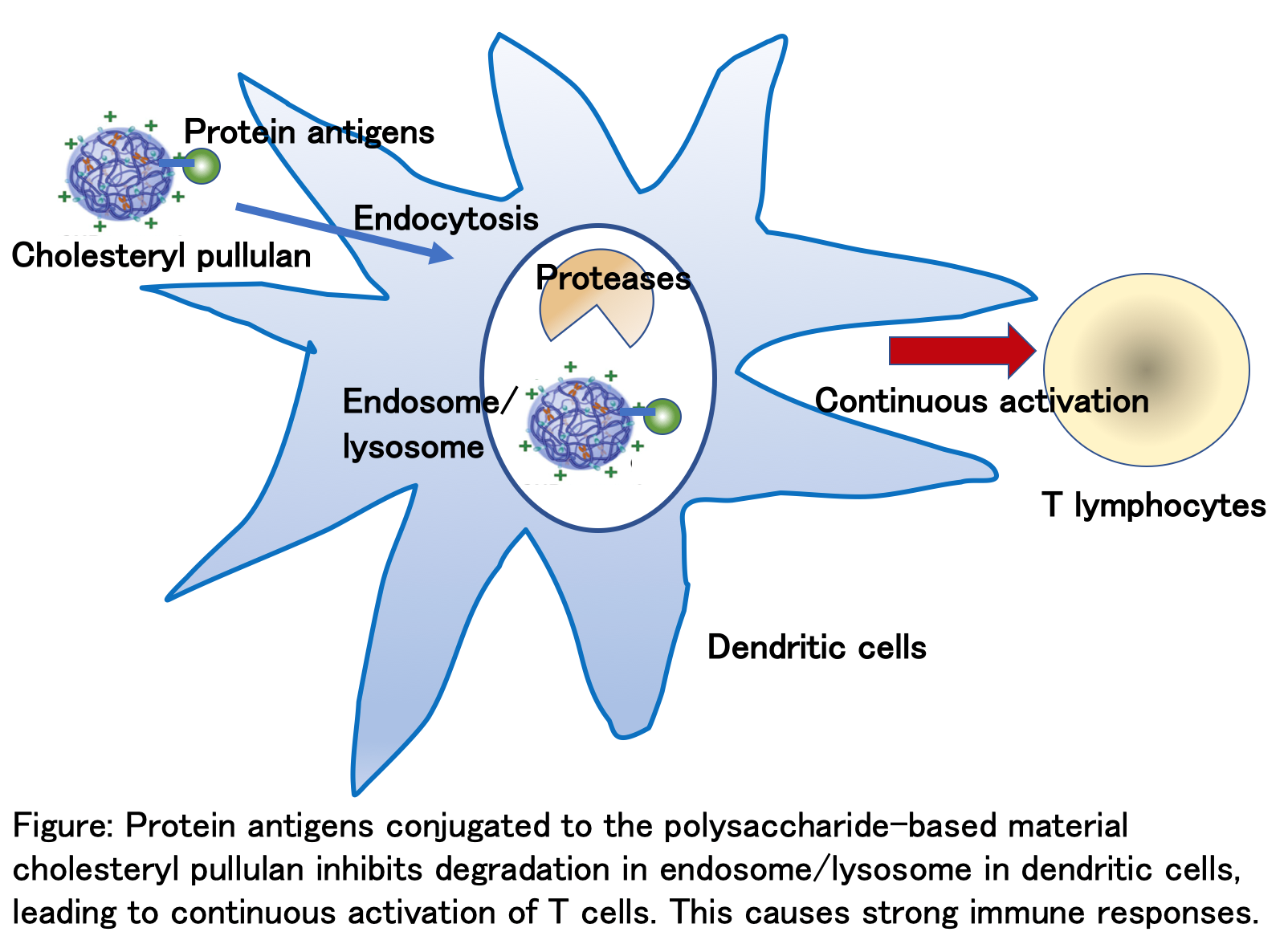Development of polysaccharide-based carriers that enhance antibody production to target molecules
"Development of polysaccharide-based carriers that enhance antibody production to target molecules"
-To develop a vaccine with high antibody-producing ability-
Points
Vaccines using purified target proteins are excellent in that they can induce an immune response to a specific target molecule, but it is not easy to elicit a sufficient immune response.
It has been clarified that the use of polysaccharide-based substances can significantly enhance antibody production to target molecules by a novel mechanism.
It can be expected to be applied to the development of highly effective vaccines.
The research group of Professor Takeshi Tsubata and graduate students Wang Long and Shinji Kunitake at Medical Research Institute, Tokyo Medical and Dental University in collaboration with Professor Kazushige Akiyoshi and Assistant Professor Shinichi Sawada at the Graduate School of Engineering, Kyoto University developed a technology that significantly enhances antibody production to target molecules using a polysaccharide-based carrier. This research was carried out with the support of the Ministry of Education, Culture, Sports, Science and Technology's Grant-in- Aid for Scientific Research, the Mitsubishi Foundation, and the Joint Research Projects at Medical Research Institute, Tokyo Medical and Dental University. It was published in the journal “Vaccine” in the online version on November 29th, 2021.

Background of research
Summary of research results
Significance of research results
Glossary
*1 Dendritic cells: One of the immune cells, which are present in various parts of the body, especially in lymphoid tissues such as lymph nodes, skin, and mucosa. These cells take up antigens such as pathogens and present them to T cells.
*2 Antigen presentation: Immune cells such as dendritic cells take up antigen, degrade it, and present its fragments on the cell surface. T cells are not stimulated by the antigen itself, but are stimulated and activated by the antigen presented by dendritic cells.
Article information
“Protein antigen conjugated with cholesteryl amino-pullulan nanogel shows delayed degradation in dendritic cells and augmented immunogenicity” by Long, W., Kunitake, S., Sawada, S., Akiyoshi, K. and Tsubata, T.
DOI: http://dx.doi.org/10.1016/j.vaccine.2021.11.047.
It was published in Vaccine, Volume 39 (2021) published by Elsevier.
Copies of this paper are available to credentialed journalists upon request; please contact Elsevier's Newsroom at newsroom@elsevier.com or +31 20 485 2719
About Vaccine: Vaccine is the pre-eminent journal for those interested in vaccines and vaccination. It is the official journal of The Edward Jenner Society and The Japanese Society for Vaccinology and is published by Elsevier www.elsevier.com/locate/vaccine

